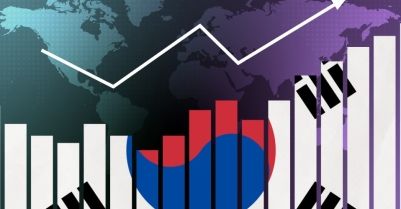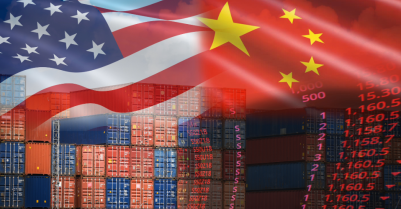-
View article
 #Economy
#EconomySouth Korea: a year after the political crisis, markets are buying the promise of stability
2025/12/17

While the fate of economic activity in the first half of 2021 will continue to depend on the course of the pandemic and hopes of the gradual development of population immunity, we may see an easing of restrictions on movement and a more sustained recovery in activity from the second half of the year onwards. This progressive return to normal should bring about the gradual withdrawal of economic support measures. That is when the true legacy of the crisis will become apparent, notably in terms of business failures and damage to profitability and jobs hitherto masked by extraordinary public, monetary and bank support.
The year ahead will be characterised not only by the existence of these contrasting forces but also by questions as to whether it is even possible to get “back to normal”. These questions will open up fundamental debates that will continue to run well beyond the end of the year and into the long term. The conclusions of these debates will shape the post-COVID “new normal”. The temptation to duck these questions – prompted by a fear of change or the conviction that the existing model is still valid – may be great.
New types of shock
The COVID-19 crisis is a bitter foretaste of various kinds of shocks (public health, climate, geopolitical, etc.) that are likely to hit us in the future, probably with greater frequency than in the past. The nature and power of these shocks forces us to think about the most effective way to configure our regulatory institutions so as to be able to withstand them. They are very different from the shocks that have regularly affected advanced economies since the Second World War, triggered by the accumulation of imbalances by certain economic agents.
The institutions that arose in the post-war years were gradually moulded to be able to respond to the first generation of shocks – those that resulted from excessive accumulation. In Europe, the model that established itself and forged our common institutions was that of regulated liberalism, on which the principle of the social market economy is founded. Under this model, the state guarantees the framework within which private agents freely operate. The state must ensure that markets can operate efficiently and prevent the formation of anti-competitive monopolies. Conversely, state intervention in respect of short-term economic management and social protection is more limited. The formation of the Economic and Monetary Union increasingly drew inspiration from the German conception of regulated liberalism (or “ordoliberalism”), which prioritised commercial considerations and the goal of price stability, inherent in a model that hinges around commercial power. The principle of moral hazard not only marked the boundaries of state intervention but also defined the approach to adjusting imbalances. The risk of forced redistribution between states that had not opted to pool their resources made this a necessity: any excessive accumulation of imbalances must be followed by a necessary correction, at the responsible party’s expense.
Does the new environment force us to call into question the fundamental philosophy underpinning the existing system? Probably not, but it will require us to make adjustments.
Organising economic policy coordination and the role of the market
In the face of COVID-19 and other potential exogenous shocks, adjustment through market action is neither justifiable nor economically efficient. The end role of the state as insurer of last resort cannot be replaced by any other institutional mechanism with the same efficiency and democratic legitimacy. The idea of moral hazard is irrelevant when it comes to organising the management of debt arising from a shock of this kind. The leverage applied by market pressure can end up being in conflict with the objectives of fiscal policy and its role as a last-resort circuit-breaker. The goal of reducing debt in the wake of such a violent shock can require a differentiated repayment trajectory and monetary support.
The “Chinese wall” between fiscal and monetary policy erected in the 1980s was justified by a high inflation and interest rate environment. But with today’s structurally low interest rates, deflationary trends and high levels of debt, an approach based on cooperation and complementarity between monetary and fiscal institutions could prove more pertinent. A coordinated “division of labour” between central banks and fiscal authorities, by way of each incorporating the other’s goal into its reaction function, could contribute to greater efficiency and credibility without necessarily undermining the pursuit of their respective goals. In the long run, there is a risk of fiscal dominance if inflation picks up, the European Central Bank’s balance sheet shrinks or markets reprice sovereign risk.
It is therefore now essential to prepare for this long-term future by overhauling Europe’s governance structures, including by establishing democratically responsible institutions tasked with managing “pandemic debt”. This is not a question of throwing out the existing model: it’s a question of leaving current institutions to focus on small-scale endogenous shocks while laying out an appropriate framework for intervention in the event of major exogenous shocks.
The return of sovereignty and the question of its relative importance
The public health crisis has also shown us that the role of the state, which appeared to have been weakened by globalisation and financialisation, is still powerful and that a rebalancing of the relationship between state and society is underway. In Europe in particular, the unfolding of the crisis has highlighted the extent to which sovereignty is no longer just about a state’s ability to make decisions unhindered within its borders; rather, it’s about sharing sovereignty so as to extend control beyond the state’s borders. However, this entails constraints and necessitates compliance with treaties and conventions. These obligations are a necessary step if states are to protect their citizens’ living conditions. If this goal is hampered, though, we may see further attempts to “take back control”. The concept of liberal democracy is a very demanding one: rolling back the state’s role as economic regulator and buttress against economic inequality can quickly turn this concept into an oxymoron, amid growing tension between liberalism and democracy.
The COVID-19 crisis has upended and accelerated Europe’s structural transformation agenda. The European Union has put in place a powerful instrument to support this transformation, which will be instantiated at the domestic level in national recovery plans to be finalised during the first quarter of 2021. This transformation will trigger disruption (redistributing added value and jobs between sectors; changing productivity and competitiveness trends; and impacting thelabour force, income distribution and the sharing of profit/earned income). How well placed a country is to tackle these changes will depend on its specific structural characteristics (its specialisation, its competitiveness, its role in global and European value chains and the skill level of its workforce). Supportive policies and changes in governance structures will play a key role in each country’s success. The ability of countries to be part of new European supply chains, leverage technological breakthroughs and come up with better governance structures to manage this huge public expenditure while getting the private sector on board will determine who comes out on top in the post-crisis world. The ability of states to support this transition and limit the number of losers from the transformation will be a key factor in determining both their own legitimacy and that of European institutions.
Paola Monperrus-Veroni








